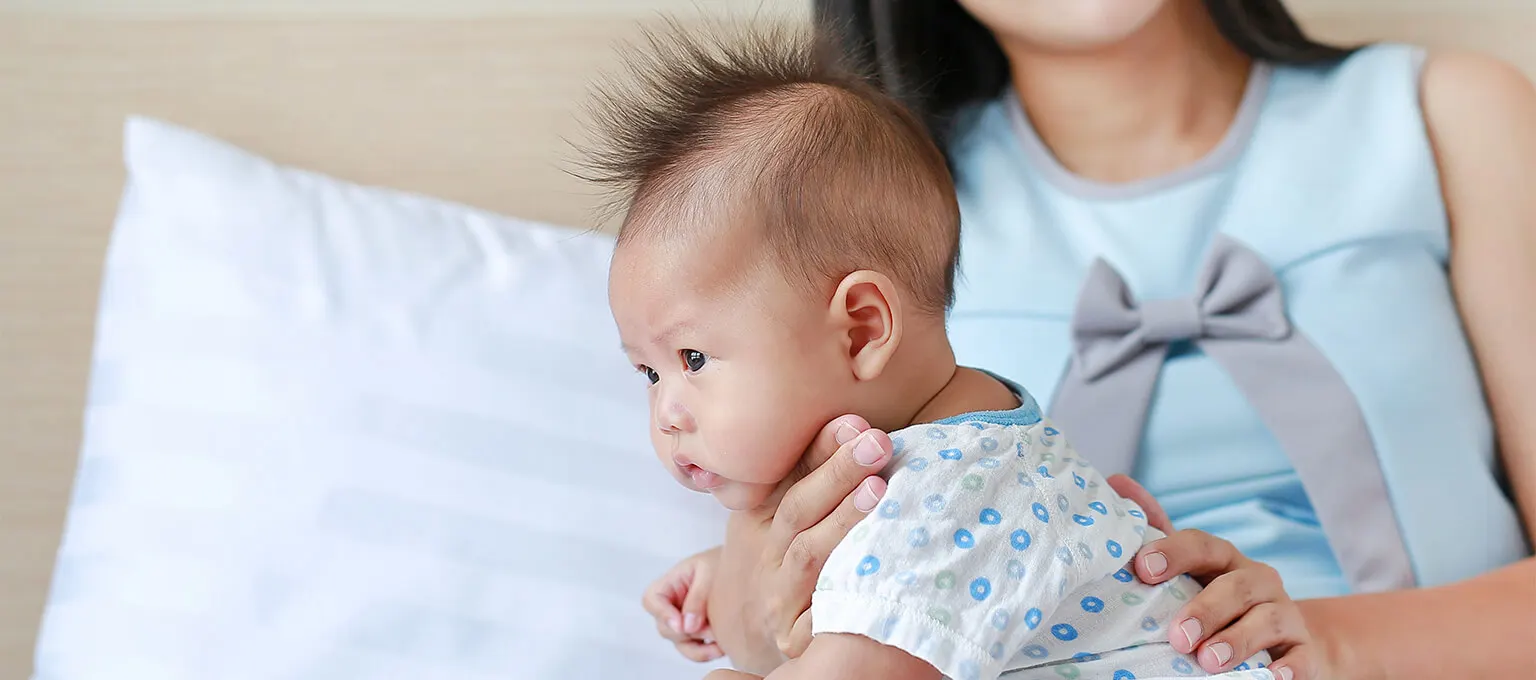How to Prevent and Stop Newborn and Baby Hiccups
It’s not unusual for your baby to get hiccups from time to time. Most babies do! Hiccups are usually nothing to worry about, and you can do a couple of simple things to help prevent them. When hiccups occur, they’ll usually go away on their own after a few minutes but read on to find out how you can help alleviate them more quickly.
What Causes Hiccups in Newborns and Babies?
Babies get hiccups from time to time. You may have even noticed your baby hiccupping when you were pregnant. This may have felt like quick, rhythmic jerks in your uterus. In any case, hiccups are usually nothing to worry about.
Hiccups are caused by your baby’s diaphragm moving in a twitchy way or having spasms when irritated. The diaphragm is a dome-shaped muscle at the bottom of your baby’s chest that relaxes and contracts to help them breathe.
When the diaphragm gets irritated, it might involuntarily contract, quickly causing air to get sucked in a little more forcefully than a usual breath. When this force of air hits your baby’s vocal cords, they close suddenly. That’s what can make that little “hiccup” sound.
Your baby’s diaphragm might become irritated if they eat too fast or too much, or perhaps if they feel excited or nervous about something.
How to Get Rid of Your Baby’s Hiccups
If your baby gets hiccups during feeding, stop and try to burp them or change their position. In general, try to help your little one relax.
Hiccups usually go away on their own, but if they haven’t gone away after about 5 or 10 minutes, begin feeding your baby again, which may help bring relief.
When your little one has hiccups, it probably won’t bother them too much. You can help your baby feel relaxed and as comfortable as possible by having some easy playtime, gently rocking them, and making sure their diaper is clean.
How to Help Prevent Hiccups in Your Baby
If your baby tends to get hiccups at feeding times, make sure they are calm and not overly hungry when you feed them. This typically decreases the chances of getting hiccups during feeds.
Your baby’s healthcare provider can also provide guidance and reassurance about what to do to help prevent hiccups some of the time. If you have a well-baby checkup coming up soon, you could even ask about it then.
The Bottom Line
When your little one gets hiccups, remember that it’s usually nothing to worry about. Try to slow down their feeding and help them feel calm. Maybe you can stop for a little baby tummy time.
Turn your little one’s diapers into rewards and savings by downloading the Pampers Club app today.
How We Wrote This Article The information in this article is based on the expert advice found in trusted medical and government sources, such as the American Academy of Pediatrics and the American College of Obstetricians and Gynecologists. You can find a full list of sources used for this article below. The content on this page should not replace professional medical advice. Always consult medical professionals for full diagnosis and treatment.
Join a World of Support
through Pregnancy and Parenthood.
TRACK WITH TOOLS
LEARN WITH EXPERTS
GET REWARDED




